At the invitation of the Sri Lankan Ministry of Agriculture and Plantation Industries, the Tea Research Institute of Sri Lanka, the University of Peradeniya, and the Chinese Embassy in Sri Lanka, a delegation led by Professor Wu Jian, Executive Deputy Director of the National Key Laboratory of Green Pesticide of GZU, visited Sri Lanka from March 25 to March 31. The delegation, which included Professor Jin Linhong, Professor Zang Liansheng, Professor Hao Gefei, and Dr. Chen Yongming, visited the Prime Minister’s Office of Sri Lanka, the Chinese Embassy in Sri Lanka, the Tea Research Institute of Sri Lanka, and the University of Peradeniya to discuss cooperation on matters such as the planned establishment of the China-Sri Lanka “Belt and Road” Joint Laboratory on Green Pest Control Technology for Tea, the joint establishment of a Confucius Institute, and faculty and student exchanges.
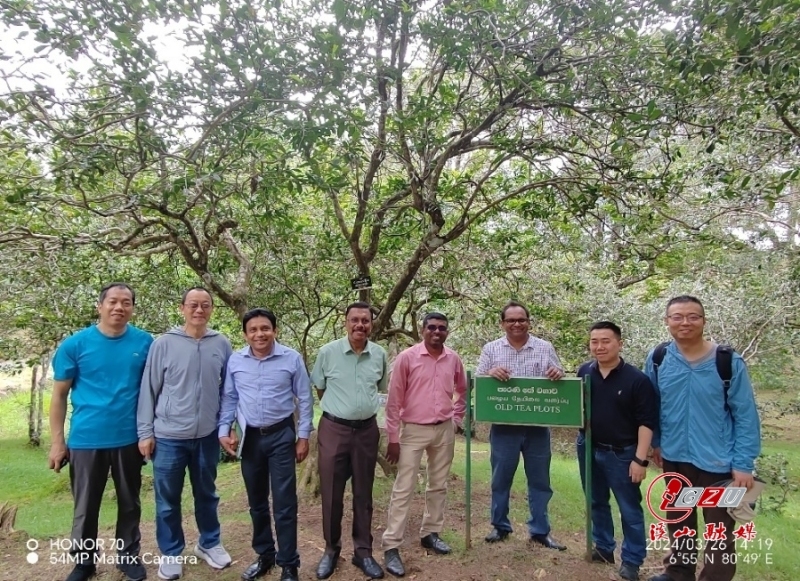
On March 26 and 27, representatives of GZU and the Tea Research Institute of Sri Lanka jointly hosted the “China-Sri Lanka Scientist Forum on Green Pest Control Technology for Tea”. Director Keerthi Mohotti of the institute introduced Sri Lanka’s major achievements in tea research, followed by Sri Lankan researchers’ presentations of their advancements in the field of green pest control technology for tea. Professors Zang Liansheng and Hao Gefei of GZU delivered reports respectively titled “Natural Enemy-based Biological Control Technology ” and “Precision Pesticide Reduction Technology Based on Big Data”, prompting extensive discussions between both sides on the related topics. More than 60 researchers from eight institutions, including the Sri Lankan Tea Research Institute, University of Peradeniya, GZU, Rajarata University, Wayamba University, and University of Ruhuna, attended the forum. During the event, the delegation also toured the Tea Research Institute’s laboratories and the ancient Chinese tea trees preserved in the National Botanical Gardens.
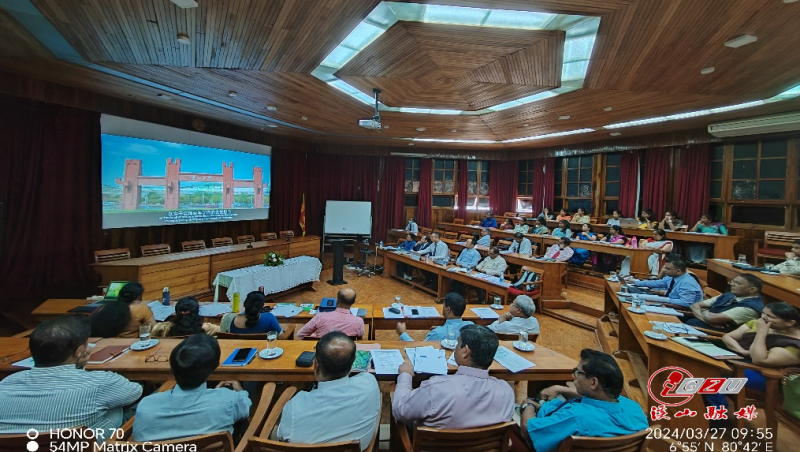
On March 28, the delegation visited the University of Peradeniya, where they were received by the university’s President, Professor M.D. Lamawansa. A series of discussions on the proposal for the planned establishment of the “Belt and Road” Joint Laboratory were conducted among the GZU delegation and the leaders and professors from the Tea Research Institute of Sri Lanka and the Faculty of Agriculture of the University of Peradeniya. The laboratory plan was jointly initiated by GZU and the University of Peradeniya, with participation from Central China Normal University and the Tea Research Institute of Sri Lanka. It will address the common needs of China and Sri Lanka in the control of pests, diseases, and weeds in tea cultivation, focusing on “precision pesticide reduction based on big data”, “biological control technology for pests, diseases, and weeds in tea gardens” and “tea pesticide residue risk monitoring and control technology”. The aim is to create an efficient, green, and safe tea pest control technology system.
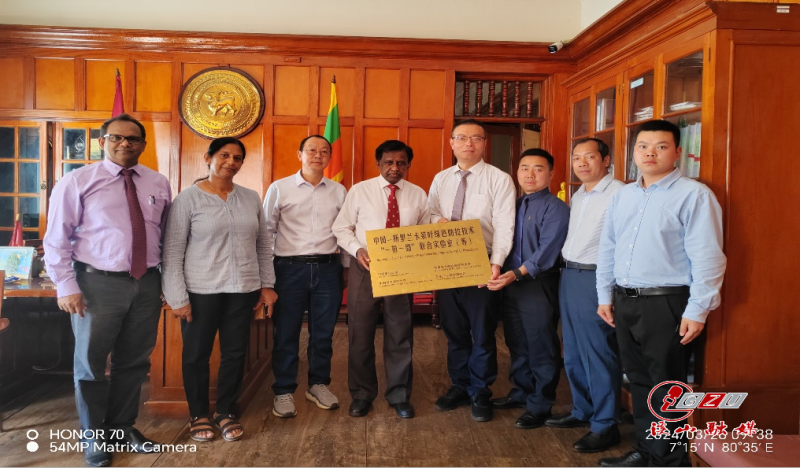
On March 29, the delegation visited the Prime Minister’s Office of Sri Lanka to discuss the establishment of the “Belt and Road” Joint Laboratory. The delegation was received by Mahinda Gunaratna, Additional Secretary of the Prime Minister’s Office. He noted that for Sri Lanka, a traditional agricultural country, tea is an important pillar industry. He believed that the establishment of the joint laboratory will promote the application of green pest control technology in Sri Lanka.
Wu Jian remarked that strengthening scientific and technological cooperation with Sri Lankan institutions and establishing the joint laboratory is an important project of GZU in response to the “Belt and Road” initiative. He expressed the hope that this cooperation will enable both parties to strengthen scientific and technological exchanges and jointly promote the development of green agriculture. Hao Gefei detailed the foundation of cooperation between the two sides in this field. Since 2016, for eight years, the two sides have been cooperating in green pest control technology, joint publications, and the cultivation of teachers and graduate students. The previous inter-university joint laboratory has trained more than ten researchers for Sri Lanka.
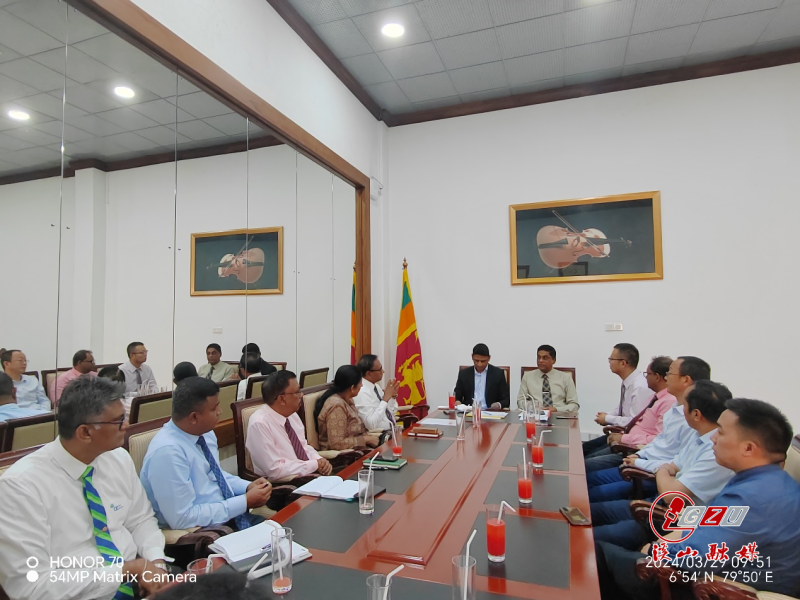
The delegation also visited the Chinese Embassy in Sri Lanka, where they were received by Minister Counsellor Zhu Yanwei. The delegation reported on their scientific and technological cooperation with Sri Lankan institutions in the field of green pest control technology for tea. Wu Jian expressed gratitude the Chinese Embassy in Sri Lanka for its support of the planned joint laboratory project. He emphasized GZU’s ongoing commitment to leveraging its advantages in plant protection while maintaining close cooperation with Sri Lankan institutions, anticipating that this collaboration will make greater contributions to enhancing the China-Sri Lanka friendship.
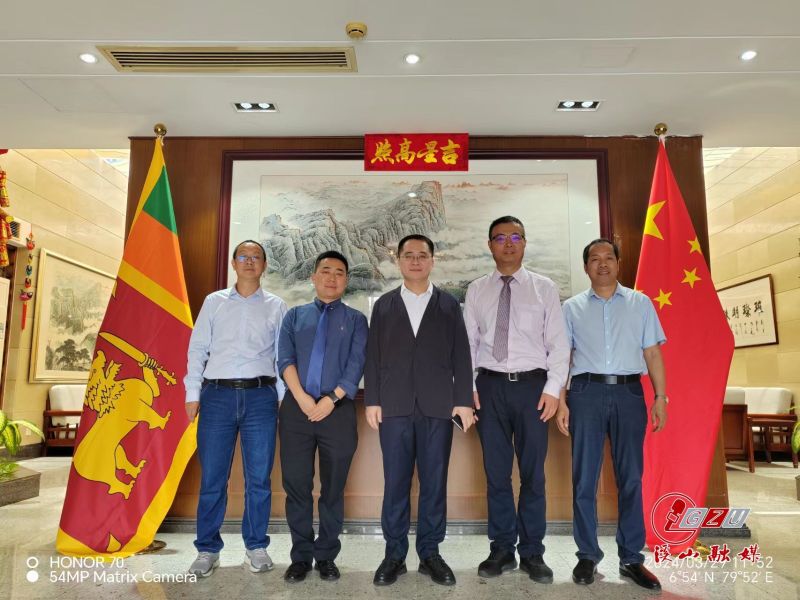
During their visit, the delegation also inspected tea plantations in central Sri Lanka to survey pest occurrence and control. At the National Agricultural Exhibition, they engaged in discussions with over ten Sri Lankan agrochemical companies. They also actively promoted GZU’s international student recruitment programs, extending invitations to Sri Lankan students to study at GZU.
Editor: Kang Meihua
Chief Editor: Zhang Chan
Senior Editor: Li Xufeng
Translator: Jia Haibo